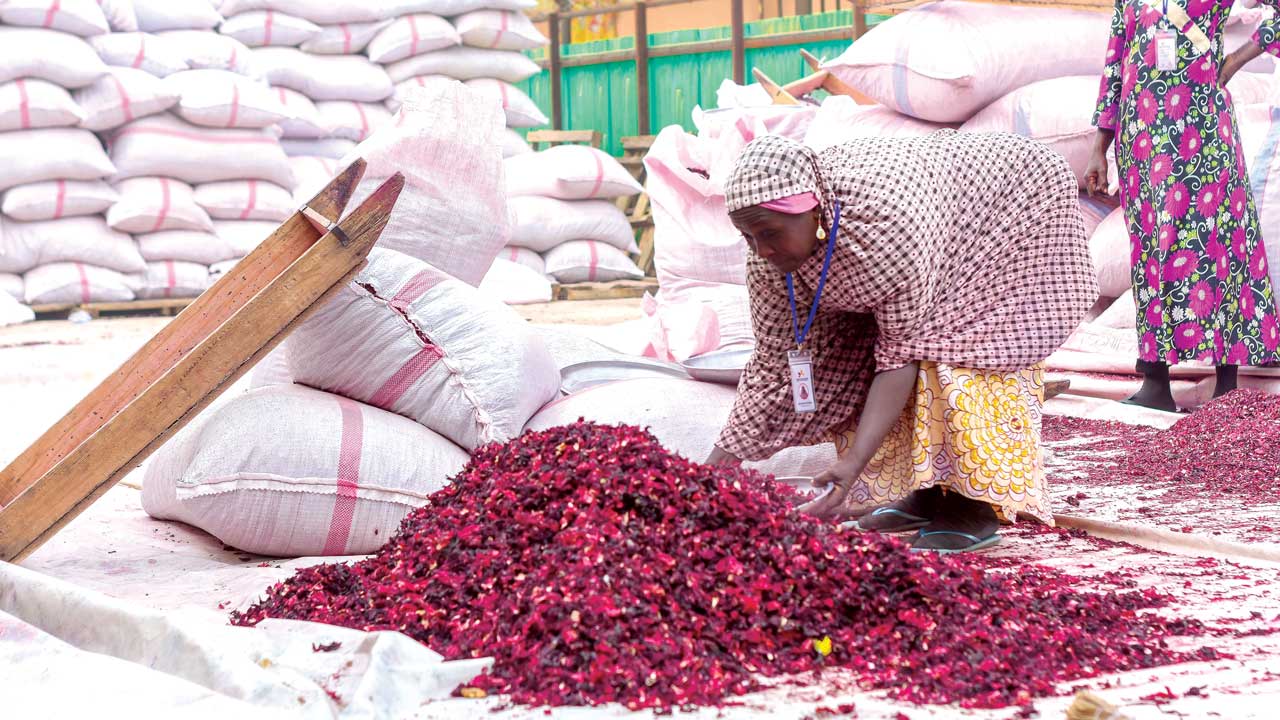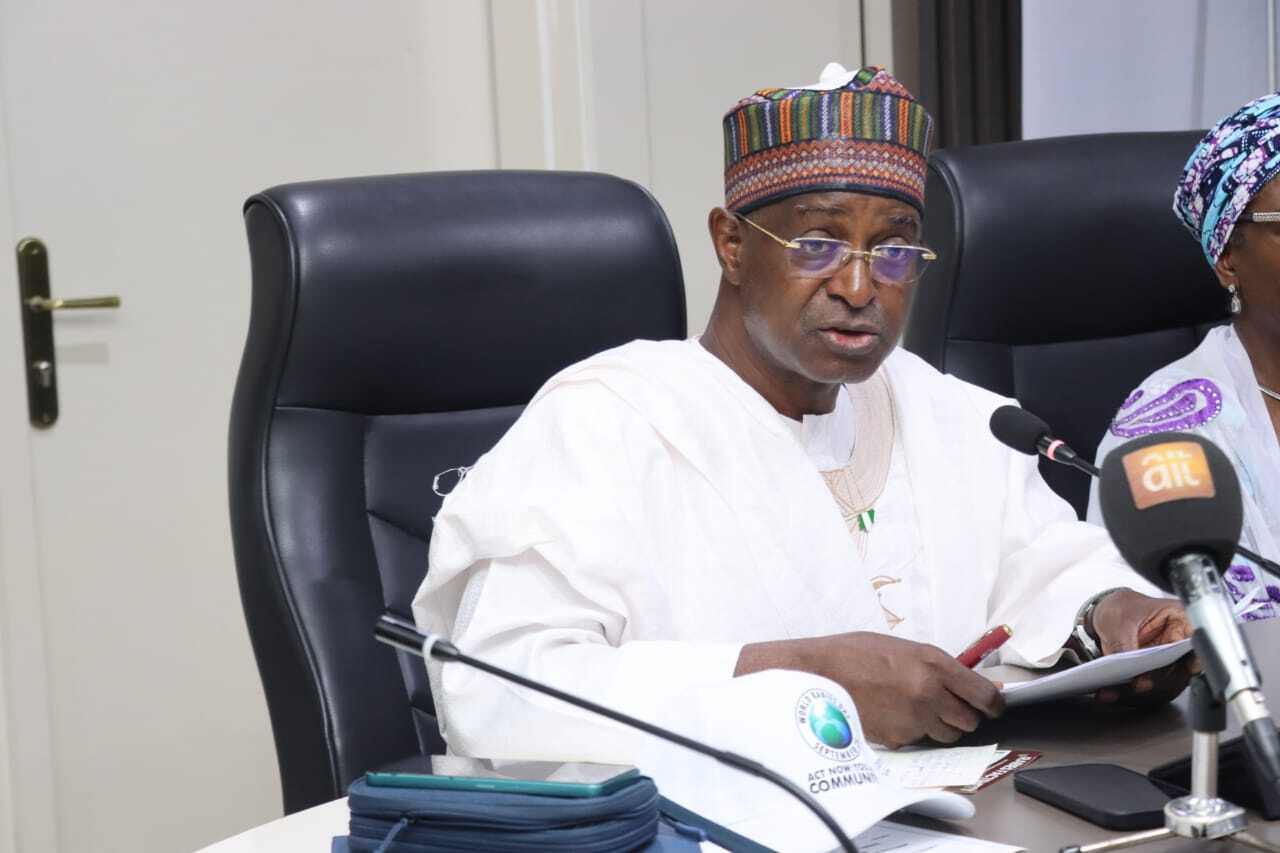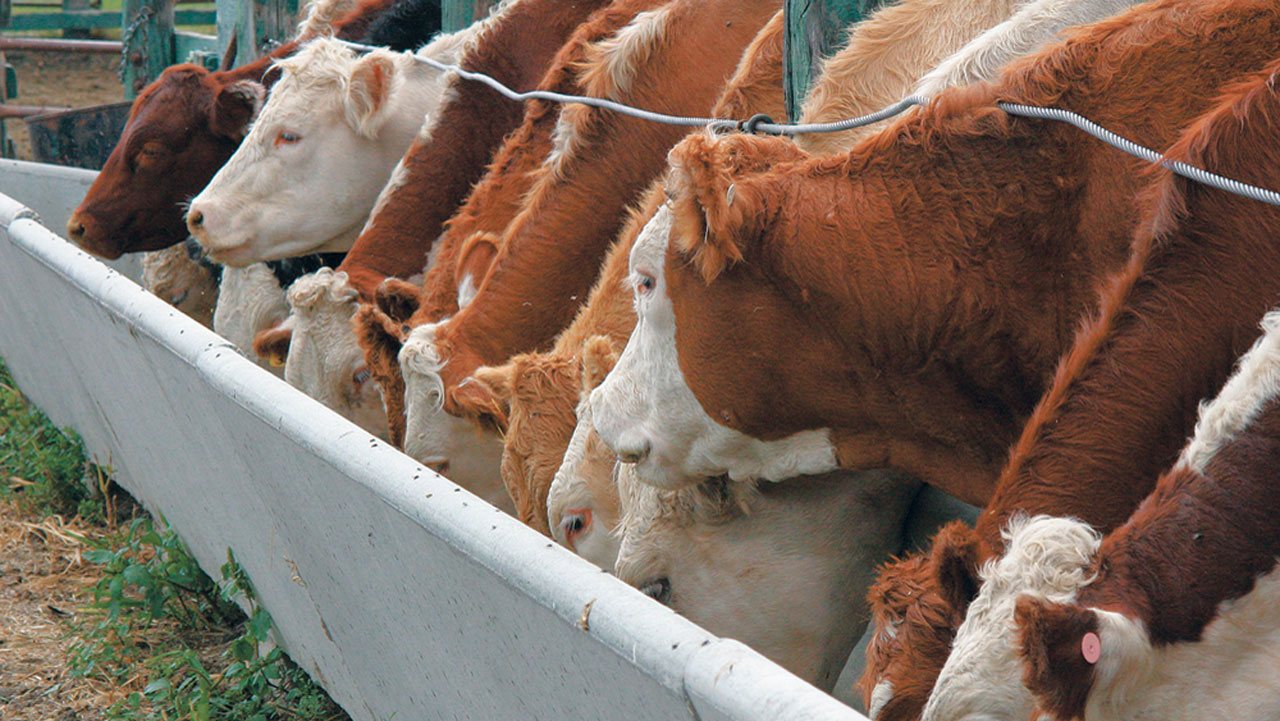
• AgroEknor Showcases Capacity
• Seeks Support Of Govt, Investors
For Nigeria to do well in global hibiscus flower market, there is need to focus more on cultivation and processing, to fully harness potentials of the crop and boost the country’s forex earnings.
Despite being a profitable, hibiscus has not received adequate attention of growers and investors. Despite its many uses and potentials, many do not know much about it.
Dry hibiscus flower is one of the key raw materials in the global confectioneries industry.
Aside the Zoborodo (Zobo) drink for which it is commonly used, hibiscus can be served as hot and cold herbal beverages. It can also be processed into jellies and eddibles, among others. The extracts from hibiscus flowers and leaves have many uses and benefits, either medically or in industrial production. Medical experts said consumption of Zobo made from the leaves aids detoxification. It could lower blood pressure, cholesterol levels, prevents liver damage, reduces weight, treats flu, it is anti-depressant, as well as reduces blood sugar levels. It also helps in darkening hair color and slows aging, having anti-aging properties.
Hibiscus flower in export markets holds great promise, especially for an economy that seeks to diversification from oil. For instance, in 2017, before the ban by Mexican government, a total of 1,983 containers of the flower from Nigeria, worth $35m were exported to the country alone, aside those exported to Europe, Unites States and South America, which are unaccounted for.
A recent tour of facilities at AgroEknor Limited’s factory and farms in Kano and Jigawa States revealed the many untapped prospects if hibiscus.
Findings showed that currently, Jigawa, Kano, Katsina, Gombe and Niger are the major producing states, with Katsina leading the pack. It takes only three to four months to cultivate and majorly harvested around September and October, depending on the area.
Hibiscus flower has five-varieties –Talata Kenya; Gugungu; Bulcara (Red and Black); Pataskum and Katsina Flower.
Despite its prospects, only few farmers are into its cultivation, as it has been confined to the north. It does not do well in the South due to the soil texture, coupled with the fact that it does not accept fertilizer usage.
One of the factors responsible for its restriction, The Guardian learnt is lack of awareness on how to grow it, coupled with low yield. Findings showed that farmers get between four and five tonnes per hectare (ha), which is marginally low, compared to 10 tonnes yield, which is standard.
One of the farmers working with the company, Alhaji Idris Abubakar, who has been into hibiscus cultivation for over 18 years, with 5,000 ha plantation in Dambata area of Kano and five ha in Babura in Jigawa State, revealed that its cultivation is profitable, compared to other farm produce. Abubakar, who produces 3,000 tonnes of hibiscus yearly said: “Farmers don’t actually know that it is profitable, aside AgroEknor, I supply five other companies. For instance, if you invest about N200, 000 on a hectare, you can make a profit of about N80, 000, depending on people you put in charge. If you now invest in 10 ha, that will be N80, 000 into 10 places, just within four months. The fact remains that there is nothing in hibiscus that is a waste, which makes it more profitable.
“However, we are encountering challenges. One of them is dwindling price regime. We usually sell at the rate of N420, 000 per tonne during the peak period. There was a period that the price rose considerably and I was forced to plant in large quantity, but the price suddenly fell, I recorded serious losses. Other challenges are -invasion of farms by herdsmen, lack of support from government and activities of middlemen, who buy and hike the price when demand is high.”
Another farmer, working with the company, Abdullahi Lawal, who cultivates 1,000ha in Dutsima Local Government Area of Katsina State, corroborates Abubakar’s claim on prospects of the produce. He said investors could earn at least N50, 000 from a hectare. He also identified activities of herdsmen and armed robbers as serious threat to their efforts. To Auwal Mohammed Alati, who cultivates 1,100ha spread across Dutse, Kiawa and Gugingu in Jigawa State, profitability depends on price variation, as price fluctuates. Alati advised farmers and investors to look the way of hibiscus farming to boost their income, as it is sustainable.
While conducting journalists round the facility, AgroEknor’s Director of Operation, Doyin Adesanya, disclosed that the major problem affecting hibiscus in the market is quality. “If the flowers are challenged, it will be rejected. The international market takes the issue of quality very serious. Currently, the ban by Mexico is actually affecting us, because they account for 80 per cent of export from Nigeria and they are always ready to accept from Nigeria because of the quality.”
To achieve good quality, the produce goes through four food safety standard stages – spreading and sifting; sorting; final check and bagging, according to the Quality Control Officer, Akintunde Adaraniwon. He said through the first three stages, all unwanted elements that often lead to rejection in international market are taken care of.
“Our fumigation chamber is being built and when completed, we’ll be able to ensure removal of all unwanted particles to make it available for international standard, he said”
The Warehouse Coordinator, Aisha Raji, told The Guardian that the company enjoys the backing of the Nigerian Export–Import Bank (NEXIM), which supports them with N50m loan quarterly, payable within three months, with a target of meeting up with 100 tonnes within the specified period.
She lamented that locally, the produce doesn’t enjoy any patronage because of ignorance. “If people are informed about the benefits, they’ll embrace it. I must confess that locally, there is no market for it.”
Speaking on the cause of the ban of the product in Mexico, Director of Operations, Adesanya said: “People go into the business without knowing the nitty-gritty. They get into exporting rubbish-stones, sands and unwanted particles, with the aim of getting more money. When the Mexico door was closed, we had to survive, that is why we are doing our best. We are the first company to export hibiscus from Port Harcourt Airport, Onne, and it was successful, the only difference compared to Lagos is the high cost.
“High levies are charged in Port Harcourt, instead of the N140, 000 fees for exporting a container; it shoots up to N200, 000, including hotel accommodation and logistics. The extra cost affected our profit line. Kidnapping, insecurity and other challenges are responsible for exporters ignoring Port Harcourt Airport, but we took that risk. Operations there are very fast unlike Lagos.
“The value-chain is complete in AgroEknor, we have farms, we process, we also have freight forwarders and shipping company that handles our produce.”Adesanya, who revealed that averagely a tonne is sold at the international market between $1,500 and $1,700, said it was producing 1,900 tonnes yearly, which dropped to 1,200 due to the ban, adding that it is targeting 2,400 metric tonnes yearly.
“Nigeria is the largest producer, but importers decided to price our products low because of low quality. And for us to match up with the international standard, we came up with the fumigation plan, which will soon be in use.“Who says hibiscus flowers cultivation will not make them rich? What is the National Agriculture Quarantine Service (NAQS) about hibiscus? What is Jigawa State Government doing about it? What is the Federal Government doing to boost its cultivation? It is a multi-billion worth commodity that can make people rich. Nothing stops the Federal Government from extending the Anchor Borrowers Programme (ABP) to hibiscus farmers.”
While calling on government to get involved, he appealed to youths to develop interest in this industry; and for government to discourage rural-urban migration and create awareness and social campaign on benefits and potentials of growing hibiscus. He identified unfriendly environment for investors and entrepreneurs, especially dearth of infrastructure, as major albatross to business development in the country.
“The issue of logistics and infrastructure is killing the business and government needs to do something. For instance, when our shipment leaves Kano for Lagos, the trip shouldn’t be more than four days, but currently, a truck can spend up to 22 days on the road due to bad state of the roads.“We are appealing to investors to join hands with us to make the industry great. Hibiscus market is very large, and can bring quick return on investment. Ours is a complete value-chain, which guarantees transparency. Investors are welcome to join hands with us.”






